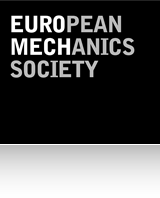Computer aided additive manufacturing processes have seen nowadays as an upward trend in complex and structurally sound industrial applications. The possible freedom and complexity of shapes provided by these family of technologies can deliver an unprecedented range of opportunities in design and engineering. At the same time, there is still an open ground in modelling and simulation techniques when applied to these processes.
From sintering processes to polymer deposition techniques (3D printing), ranging from metallic based applications in structural mechanics to advanced organic materials for biomechanics, there exists an extremely high number of control (input) variables and physical phenomena involved, all with a strong influence on the achieved behaviour of the final components. The extremely high intricacy and particularities of each type of additive manufacturing processes must therefore be addressed by means of innovative, reliable and efficient numerical simulation techniques, able to provide multiphysics modelling capabilities in real time and cost-effective computational efforts.
Not limited to a particular industrial application, the present proposal for a EUROMECH Colloquium aims to be a privileged scientific discussion forum focusing on the state of the art as well as future challenges on mathematical/physical formulations and the corresponding modelling and simulation procedures for technologies within the additive manufacturing field, in its broader sense, with particular emphasis on manufacturing processes like, for instance, 3D printing, granular binding, extrusion deposition and sintering.
Topics:
Multiscale analysis;
Thermomechanical coupling and constitutive models;
Computational methods for residual stress and geometric distortion predictions;
Integrated design considering, for instance, printing direction and microstructure effects;
Manufacturing optimisation and control analysis;
Algorithms for a proper identification of process and material parameters;
Topology and shape optimisation;
Integration of modelling with process design and performance evaluation;
Finite Element, Meshless and Isogeometric-based numerical simulation approaches.
